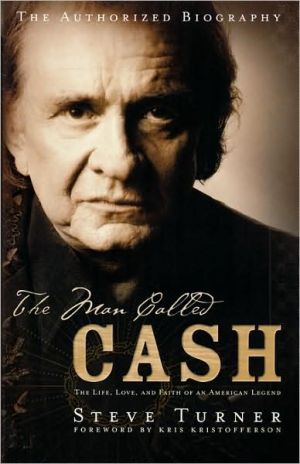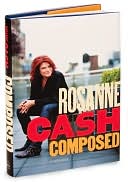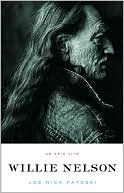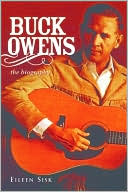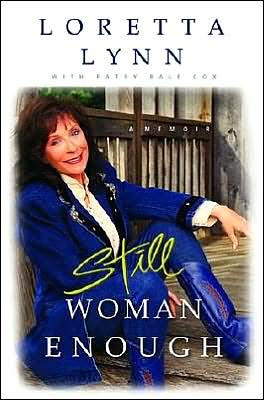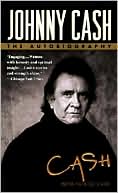The Man Called Cash: The Life, Love, and Faith of an American Legend
Johnny Cash is one of the most influential figures in music and American popular culture today. While he was an icon to people of all ages during his life, Cash's legacy continues after his death. His remarkable story is captured in this exclusive authorized biography, addressing the whole life of Johnny Cash-not just his unforgettable music but also his relationship with June Carter Cash and his faith in Christ. His authenticity, love for God and family, and unassuming persona are what Steve...
Search in google:
Johnny Cash is one of the most influential figures in music and American popular culture today. While he was an icon to people of all ages during his life, Cash's legacy continues after his death. His remarkable story is captured in this exclusive authorized biography, addressing the whole life of Johnny Cash-not just his unforgettable music but also his relationship with June Carter Cash and his faith in Christ. His authenticity, love for God and family, and unassuming persona are what Steve Turner captures with passion and focus in this inspiring book.Different from other books written about him, The Man Called CASH brings Cash's faith and love for God into the foreground and tells the story of a man redeemed, without watering-down or sugar-coating. The Man Called CASH will be a huge success with his millions of fans and will draw in many new fans with this inspiring story of faith and redemption.
The Man Called Cash\ The Life, Love and Faith of an American Legend \ \ By Steve Turner \ W Publishing Group\ Copyright © 2005 Steve Turner\ All right reserved. \ ISBN: 0849908159 \ \ \ Chapter One\ First To Cross \ When Johnny Cash lost his wife June Carter in May 2003 the public took a sudden deep breath. Surely it was Cash who should have died first. It was he who had subjected himself to an extensive catalog of physical abuse. It was doubtful whether he had a bodily organ that hadn't been operated on, an area of skin that hadn't been gashed or a significant bone that hadn't been cracked. It was he who had overdosed on drugs, been pulled out of car wrecks and even undergone triple bypass surgery. Even though he was June's junior by two and one-half years, everyone assumed he'd be the first to go. That's the way he wanted it, if they weren't able to go together.\ And when it's all over\ I hope we will go together\ I don't want you to be alone, you know.\ (I Love You Tonight, 1993)\ The obvious question on everyone's mind was, "How will he cope now that she's gone?" The couple's mutual devotion was legendary-it had become impossible to imagine one without the other. In the days when he was physically tough the loss of his wife would have been a devastating blow that would probably have sent him straight back on pain-killers, so how would he manage now that he was frail and sick? Would he lose his faith? Would he ever record another song? Would he die of a broken heart?\ His most recent single, a cover of Trent Reznor's "Hurt," had sounded like the final breath of music by a man admired for his honesty and self-disclosure. Although written about the pain of heroin addiction, Cash had appropriated the song's gritty imagery, masterfully turning it into a melancholy meditation upon his own mortality. The promotional video, directed by Mark Romanek, endorsed this interpretation through selected flashbacks of Cash's public life and lingering shots of the derelict and flood-damaged House of Cash museum where once-prized trophies now lay discarded and broken.\ Reznor may well have had junky squalor in mind when he coined the phrase "my empire of dirt," but Cash's weak and wavering voice imbued new meaning. All empires eventually end in dirt, in dust-even show-business empires. As a Bible-loving Christian, surely Cash recalled the words of Jesus:\ Do not store up for yourselves treasure on earth, where moth and rust destroy, and where thieves break in and steal. But store up for yourselves treasures in heaven, where moth and rust do not destroy, and where thieves do not break in and steal. For where your treasure is, there your heart is also. (Matthew 6:19-21)\ The video frequently cuts from Cash's ravaged features, as he sings and plays guitar, to clips of the swaggering, powerful, dark-haired man he had once been. Here was Cash at San Quentin; Cash waving from the firebox of a steam train; Cash fooling with June in the back seat of his RV while on tour. The truth of fading beauty, forgotten earthly achievements, and broken human bonds, powerfully and yet wordlessly seeps from the screen. For viewers, Hurt, lived up to its title, producing at least a lump in the throat, possibly even a tear in the eye. The video peaks emotionally with Cash singing:\ What have I become, my sweetest friend?\ Everyone I know goes away in the end.\ As he delivers these lines, the view cuts to June, standing at the foot of a staircase watching him with conflicting emotions of admiration and pity, wonderment and sorrow etched across her face. What indeed had her man become? In actuality, old, grey, feeble, partially sighted, and diabetic. Throughout it all though, she had remained, undoubtedly, his sweetest friend. Her lip quivers, as though she knows that she is watching the man she loves singing his final testament, but it may have been due to her awareness of her own mortality and the prospect that she may precede him. What Mark Romanek didn't know as he filmed this reaction shot was that the day before, October 17, June had been diagnosed with a leaking heart valve.\ Death no longer frightened Cash, but loneliness did. As a convinced Christian, he welcomed the imminent separation of soul from body. Cheating death in 1988 initially made him angry. Waking up, he realized, meant a continued life of pain, whereas death meant eternal bliss. The possibility of losing June, though, was an excruciating thought because he found it impossible to contemplate life without her. She was not only his wife but his spiritual companion, his artistic partner and his caregiver. While maintaining her characteristic optimism and boundless energy, she had nursed him through a series of life threatening illnesses. She was, as he would often say, his solid rock.\ During the early part of 2003, Cash entered the hospital three separate times with pneumonia-his deterioration most marked upon his release from Nashville's Baptist Hospital on April 1, 2003. Only seventy-one, he looked old. With sunken cheeks and shaking hands, for the first time in his life he had to be pushed in a wheelchair. Once at home, he relied on a walker. Plagued with diabetic abscesses on the bottom of his feet, he needed special over-sized shoes with holes in the soles to prevent rubbing. Wearing them made him look slightly Chaplinesque. June fussed over him as best she could, keeping him as comfortable as possible. Although she prided herself on doing everything, from cleaning to cooking meals, she and Cash now found themselves in the constant company of two professional caregivers, one of them medically trained.\ When he returned home in April, it wasn't to the large house on Old Hickory Lake where he and June had lived since marrying in 1968, but to a home nearby, that years ago he'd bought for his parents. Though his mother, Carrie Cash died more than ten years earlier, everyone still referred to the property as Mama Cash's house. Since Cash could no longer climb stairs, the ranch house made perfect sense as a place to recuperate while elevator installation continued at the Big House.\ Though smaller, Mama Cash's house was comfortable. It forced the couple together. Back home Johnny tended to hide away in his upstairs study, burying himself in books or music. At Mama Cash's he and June would share the gospel and bluegrass CDs his office sent over at his request or the two would sit and watch television together. Only at bedtime did they separate. Reluctantly, Cash agreed he needed the twin bed that was put in a single bedroom that led off one end of the living room. June's room was off at the other end.\ At five o'clock in the morning, two days after arriving home, he woke to the arrival of his younger sister Reba Hancock and her daughter Kelly, who worked at the House of Cash. When they stopped by his bedroom door he knew that trouble had come to the family. "I know that you're the messenger Reba," he said. "You've been sent to tell me that Louise is gone."\ Louise, their oldest sister, had suffered the ills of pancreatic and liver cancer since July 2002. Three hours earlier she had died at her home in Hendersonville at the age of seventy-nine. Hers was the first death in the immediate Cash family for almost ten years. The funeral of Margaret Louise Cash took place at College Heights Baptist Church two days later on Sunday, April 6, and she was buried at Hendersonville Memory Gardens. Cash was too weak to attend.\ On the day that Louise died, Ron Keith, a photographer from Madison, Tennessee, was due to shoot a cover photograph of June for her recently recorded solo album, Wildwood Flower. June didn't feel well and she called to cancel, but Keith, who'd known her since he was a child, talked her out of it. "You know how these things go," he'd said. "I'll come in and do it very quickly. You can just step outside the house." June relented, although she worried that she looked drained, and Keith came and shot some pictures of her by the house on the lake. A couple of days before, she had showed him round the garden pointing out the various trees that were in bloom. She wanted plenty of flowers in the pictures so the feeling of springtime would come across.\ The next day when she accepted an award for "Hurt" on Cash's behalf at the CMT Flameworthy Video Music Awards it was obvious to onlookers that she was unwell. Not only was she physically bloated as the result of the fluid build-up in her body, but also she was mentally confused due to the lack of oxygen reaching her brain. She looked disheveled and fluffed her lines. The show was broadcast live on television, and Cash watched it at home in the company of his producer Rick Rubin.\ On April 11, she was admitted to the Intensive Care Unit at Baptist Hospital where she was diagnosed with congestive heart failure, though the doctors were unsure of how best to treat her. She developed a serious cardiac arrhythmia and had to be defibrillated but was able to sit up in bed and watch old videos of herself as she recovered. After five days she was considered well enough to return home.\ On April 28, she developed serious breathing problems. When her niece Kelly called at the home the nurse was carrying out an examination. She instructed, "Get her straight into the hospital for tests." Kelly called June's physician, Dr. Terri Jerkins, at Baptist Hospital and made arrangements for her to be taken in. In retrospect, Kelly believes that June knew that she might never come home. Before she left the house she had a brief conversation with Johnny, in which she insisted, "I have to go, and you have to let me go." It was unusual language for June and seemed to have ominous undertones. "Don't worry about me," she continued. "I have to go now. You stay here and take care of yourself."\ Over the next three days June underwent the full battery of tests. Doctors established that fluid on the lungs due to disease in her mitral valve had caused her breathing difficulties. This inflow valve opens to allow freshly oxygenated blood to flow into the left ventricle of the heart so that in turn that blood can be pumped throughout the body. When it fails to open or close completely, blood leaks backward into the lungs, causing build-up. The heart then has to work harder to compensate for the loss of blood, and this leads to heart failure, often recognized by its symptoms of fatigue and shortness of breath.\ The only solution was a replacement valve, but because she'd taken prescribed blood-thinning medication during her Christmas vacation in Jamaica, surgery would have to wait until she discontinued the medication, and her blood began to coagulate normally. June was apprehensive about undergoing major surgery at the age of seventy-three, saying that she didn't think that she had the energy to cope. Cash pleaded with her to go through with it because it offered the only realistic possibility of extending her life. He told her how much he loved and needed her and said that for him life without her would have no meaning. She eventually agreed, and May 7 was set as the operating date. The day before, her son, John Carter Cash, visited her with the contact sheets from Ron Keith's photo session. She looked over them in her hospital bed, and while Keith had done a good job, she wasn't happy with the way she looked. She looked ill, she thought. She suggested that they go ahead with an alternative cover.\ The operation went well. Doctors successful replaced her damaged mitral valve with one made from an animal's aortic valve. Settled into the Intensive Care Unit and attached to a respirator, she surprised her doctors the next day, by recovering enough to breathe unaided. Cash came in and spent six hours at her bedside in his wheelchair. Relieved that they seemingly weathered the worst, they laughed with each other. June ate a dish of Jell-O. Cash told her that once he got back to the lake house he planned to build up his strength enough to walk again. Rick Rubin had recommended a kinesiologist, Dr. Phil Maffetone, who would wean him off much of his medication and develop a program that would restore the withered muscles in his legs. Then, when they were both recovered, he wanted them both to fly to Germany to see their friends Walter and Monica Eschenbach.\ But after he left the hospital, June put a call through to Kathy, the second eldest Cash daughter and the only one living in the Nashville area. She still seemed breathless and unable to talk for long. She told her that although she was off the respirator she didn't feel that she was going to make it. "You're gonna be fine, June," Kathy said. "People have that surgery all the time. I'm sure that you're hurting so bad at the moment that you feel you're not going to make it." But June was insistent. "No, honey. I really need you to know that I'm not gonna make it. Please take care of Daddy."\ Kathy didn't share the conversation with her father. He had gone home confident in her recovery and looking forward to her homecoming. He'd even told Kelly that he believed that her speedy recovery had been an answer to prayer because one of the doctors had told him that it was unusual for a patient to come off the respirator so quickly after such a major operation. He'd remarked that she must have the constitution of someone thirty years younger, and that it looked like she'd be moved out of ICU into one of the private suites by the weekend.\ That night, at 2:00 am, June suffered a massive cardiac arrest. It took twenty minutes for doctors to manually resuscitate her. They couldn't use a defibrillator because of the recent surgery. But the resuscitation was only enough to put her on a life support machine-she remained in a coma. Cash was called to the hospital immediately and by early morning on May 9 the family began gathering: June's daughter Rosey, John Carter, Kathy, and Rosanne.\ Because they were unsure of exactly how long her brain had been deprived of oxygen, the doctors would have to wait at least three days to see if June responded to any stimuli. If there was no response, they'd carry out tests. Kelly was shocked at the effect this was having on her uncle. To her he had always been a man who was larger than life, a man who stared his own death in the face and didn't flinch, but now he was physically and emotionally broken. He looked defeated and she had never seen him that way before. After the doctors explained the situation she saw him take a deep breath, "Okay. I'm gonna pray about it," he said. "And I'm gonna go down and see her."\ For the next three days the children based themselves in an eighth floor suite. Every half an hour or so Cash would make his way down in the elevator to sit by June's bed. He held her hand. He talked to her. He prayed for her. He sang her songs and read her Psalms. He begged her not to leave him. His long time manager, Lou Robin, put out an appeal for fans to pray for her recovery, something he had done for Cash when he had been in a coma in 1997.\ Tests to gauge brain activity were carried out on Monday, May 12, and then the cardiologist came up to the suite where everyone was gathered. The news, he said, was as bad as it could be.\ Continues...\ \ \ \ Excerpted from The Man Called Cash by Steve Turner Copyright © 2005 by Steve Turner. Excerpted by permission.\ All rights reserved. No part of this excerpt may be reproduced or reprinted without permission in writing from the publisher.\ Excerpts are provided by Dial-A-Book Inc. solely for the personal use of visitors to this web site. \ \
